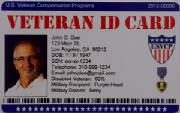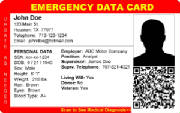|
|
|
|
Top 10 Reasons Veterans Don't Pursue Benefits
1. I don’t trust the Government. Many veterans have indicated that they don’t trust their Government in matters of confidentiality and privacy, and therefore, have no interest in pursuing benefits. Veterans from the Vietnam era are particularly sensitive regarding their distrust of the Government. Many veterans from that era have indicated that they had a very bad experience while in uniform, and felt as though the Government is not really inclined to assist or help them. One veteran said, “The Government did me wrong while I was in Vietnam, and I am sure they’ll do me wrong again.”
2. I didn’t know I was eligible. Far too many veterans are unaware of their eligibility status. Many veterans assume that since they aren’t registered to use VA services, they are automatically ineligible for benefits. One veteran said, “I never retired from the military so I always believed I was ineligible for benefits.”
3. I am not eligible. Military discharge status plays in big role in determining if a veteran is potentially eligible for benefits. Honorably discharged veterans are 100% eligible for benefits if they meet the criteria. Veterans with a Bad Conduct Discharge are not eligible for benefits. However, some veterans fall some place between an Honorable Discharge and a Bad Conduct Discharge. For instance, a veteran with a General Discharge is oftentimes eligible for benefits. Best to visit with a Veterans Service Officer to find out if you qualify. One veteran said, “My discharge papers show that I was forced out of the military due to the needs of the Government and my bad foot. I have a General Discharge with medical stipulations. I always thought that made me ineligible for future benefits.”
4. I don’t want to go through the “red tape.” Many veterans are of the belief that pursuing benefits from the VA is a matter of navigating a very complex and confusing system that involves mounds of documentation. While it may be true that there is a lot of paperwork, most, if not all is handled by a competent VSO and not the veteran. The VSO is trained to work with the bureaucracy, not the veteran, and takes much the complexity away from the veteran. One veteran said, “It’s just too confusing to get started.”
5. I don’t know how. While there are many veterans service organizations in existence, many veterans do not understand how those organizations can truly help them apply for benefits. Also, many veterans don’t know where to begin. One veteran said, “I always thought a VFW was a bar for veterans, and they sit around and swap war stories. I never knew they had staff on board that could help me apply for benefits.”
6. I make too much money. There are many veterans who make over one hundred thousand dollars annually, and are receiving compensation for a service-connected disability. A veterans’ disability is independent from their income from other sources, and is not a factor to determine eligibility. There are a few millionaire politicians who are service-connected and receive monthly compensation from a service-connected disability. One veteran said, “I never applied for benefits because I always believed I made too much money to be eligible for compensation.”
7. I was denied after the war. Sure, many veterans are denied after first applying for benefits, whether a few months after serving in a war zone or years later. Bottom line, sometimes it takes a few tries to get it right. One veteran said, “I applied for compensation after being diagnosed with PTSD and was quickly denied. I decided it wasn’t worth my time to try again.”
8. Don’t know what to apply for. Some veterans have many post war ailments and aren’t sure which ones to submit for service-connected compensation, while other veterans appear healthy, except for a few nagging conditions, and aren’t sure if their condition would be considered for compensation. Discussing your issue with a respected and competent VSO is very important. They often know what is potentially eligible for compensation and what is not and most importantly, how to get your benefits package started. One veteran said, “I have so many things wrong with me I don’t know where to start. If I submit claims for all of my conditions the VA will reject them all thinking I am not telling the truth.”
9. I can’t prove my health problems are related to my time in the military. Finding a good VSO is very important in securing disability compensation for a service-connected condition. The VSO will help you connect the dots. Some VSOs are very innovative in helping veterans find the appropriate proof needed for their claims. While other VSOs have great “inside connections” that may be able to locate documents needed to show proof for a veteran. One veteran said, “The VA can’t find my medical records so I can’t prove I was injured in Vietnam.”
10. Other veterans are more deserving. Too many veterans take this stance to keep themselves from attempting to apply for benefits they may be eligible to receive. The forces and influences that kept many soldiers alive by watching each others’ back live with them forever. One veteran said, “It took guys in my group one year to convince me that I should apply for compensation. I did, and six months later I was 80% service-connected for PTSD, depression, and diabetes. I never would have put in for benefits if they didn’t talk me into it.” |
|
|
|
|
|
|


